Wales election 2021: UKIP fights for 2016 voters
- Published
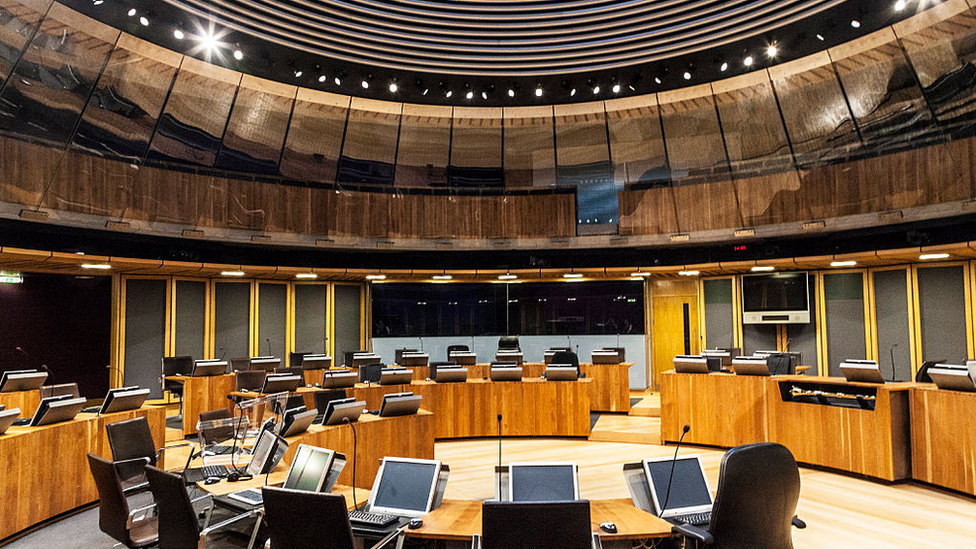
UKIP won seven seats in 2016
It is a contest that could have a big impact on the make up of the Senedd after election day.
In a crowded field on the right of politics, parties are trying to woo tens of thousands of people who voted UKIP in Wales five years ago.
An academic study suggests those voters had overwhelmingly switched to the Conservatives by the following year.
If the Tories can retain their support, it will help them close the gap with Labour in key battleground seats.

SIGN UP FOR WALES ALERTS: Get extra updates on BBC election coverage

The 2016 Welsh election was a breakthrough for UKIP.
It won seven seats, thanks to more than 132,000 regional votes.
Another 127,000 votes were cast for the party in constituency contests.
That success, in the month before the Brexit referendum, cost the Welsh Tories dearly.
For the first time since 1999, their share of the vote fell in a devolved election.
UKIP's mission to challenge what it saw as the consensus in Cardiff Bay did not quite go to plan. Political and personal differences led to acrimonious splits.
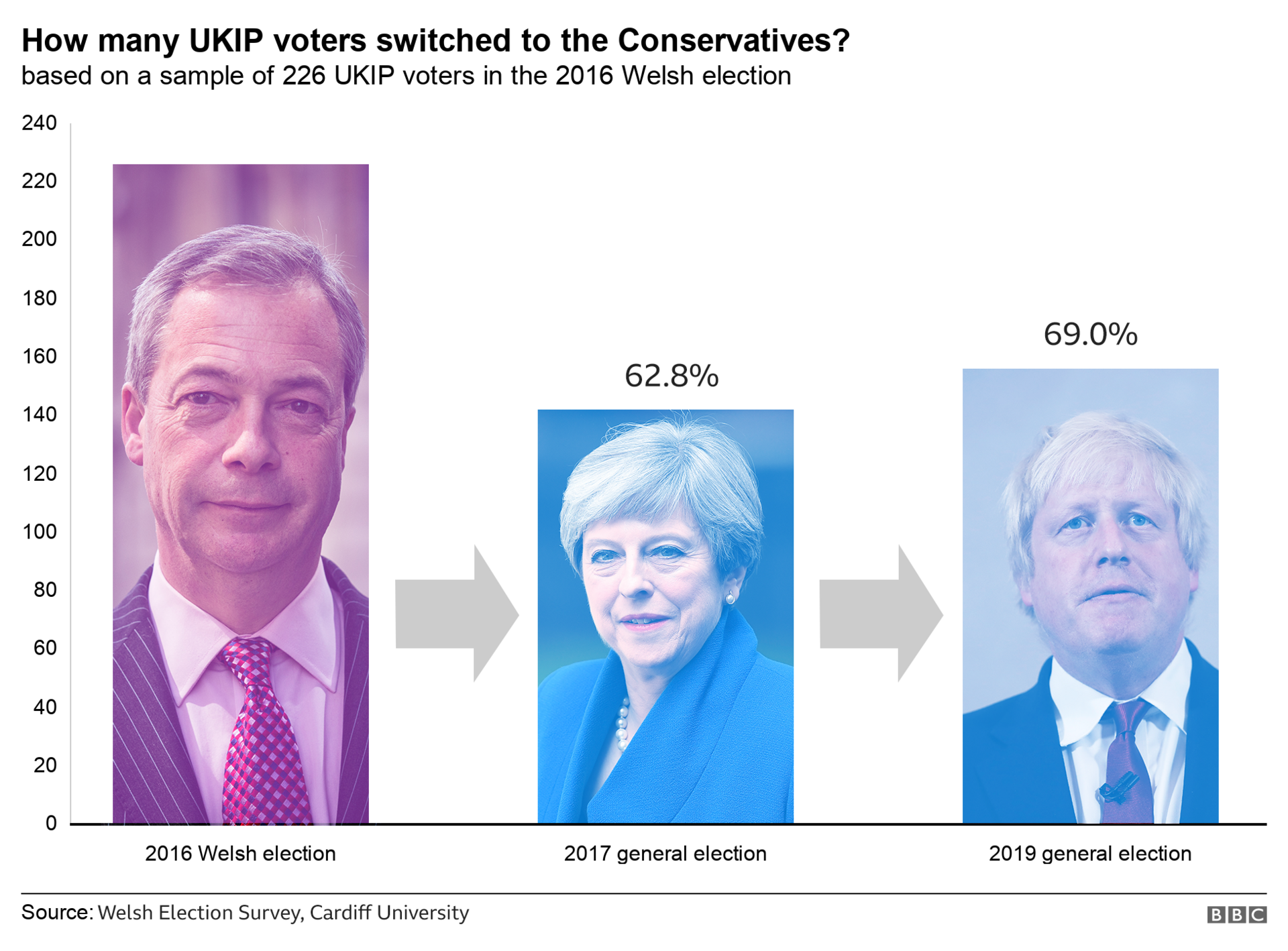
The number of voters switching from UKIP to Conservative increased in the 2019 election after a drop in the 2016 election

In the post-Brexit era, without former leader Nigel Farage, UKIP is a shadow of its former self.
Only one person who represented the party in the Senedd, Neil Hamilton, is standing for it as a candidate this time.
As UKIP's politicians went off in different directions, the Welsh Election Study (WES) suggests most of the voters who put them in Cardiff Bay switched their allegiance too.
The survey tracks the choices of voters through different elections.
The vast majority who flocked to Nigel Farage's banner in 2016 voted for Theresa May and Boris Johnson in the general elections of 2017 and 2019.

WALES ELECTION: THE BASICS
What's happening? On 6 May, people will vote to elect 60 Members of the Senedd (MSs). The party that can command the support of a majority of MSs will form the Welsh government. Find out more here.
What powers does the Senedd have? MSs pass laws on aspects of life in Wales such as health, education and transport - and have some tax powers.

"There's some question about whether they'll stay there, of course," says Jac Larner, of Cardiff University's Wales Governance Centre.
"One of the reasons why a lot of these voters would have gone to the Conservatives, especially in the 2019 general action, is because of the issue of Brexit and how salient and important that was.
"Some people might think that Brexit is now done, you know it's sorted, at least we have left the European Union.
"So now that issue is sorted there's a question over whether this block of voters will be willing to kind of lend their votes to the Conservatives again or whether they'll be looking for other parties to vote for - or even whether they'll vote at all at this upcoming Welsh election."
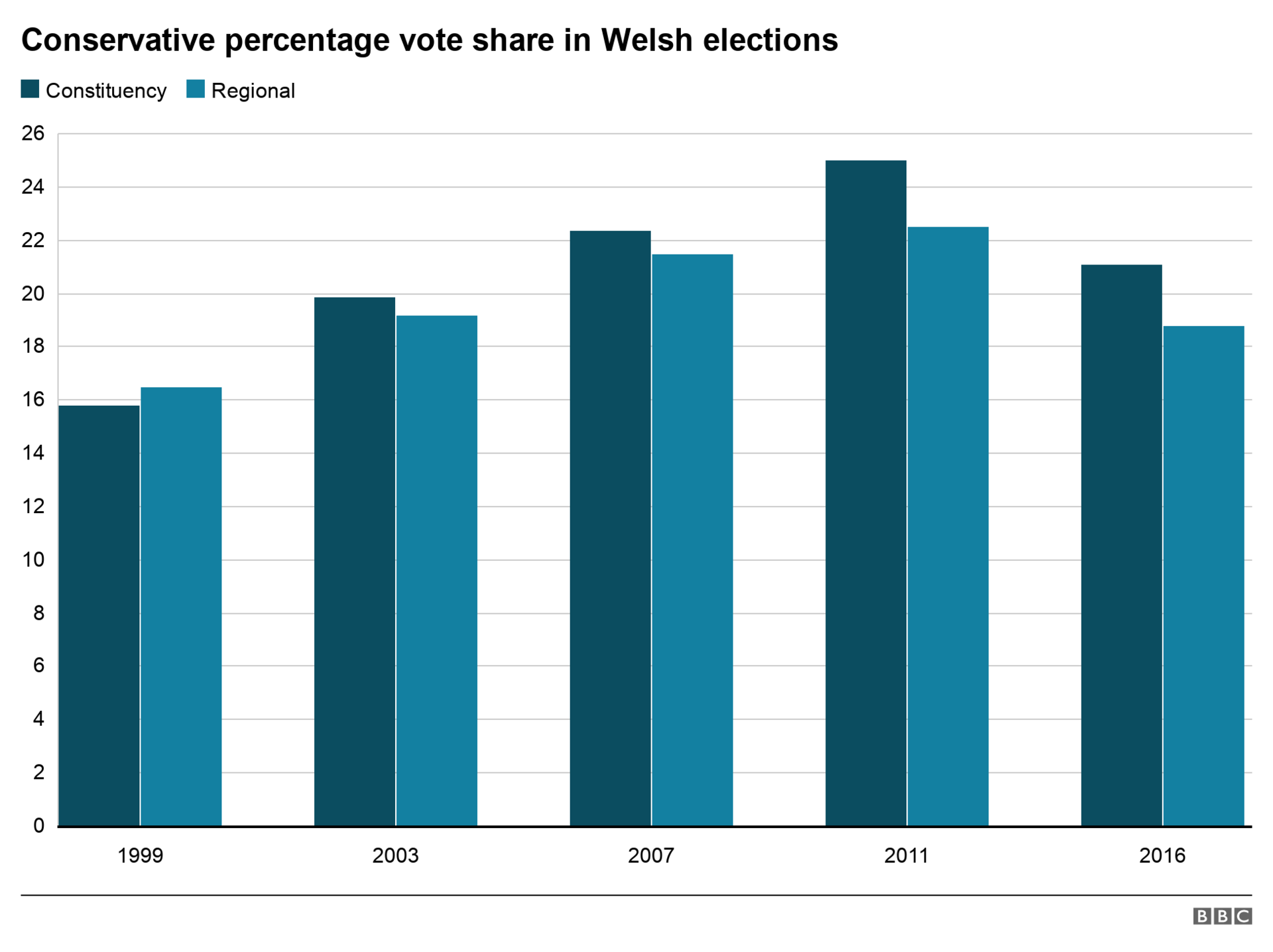
The vote share for the Conservatives dropped in 2016 after a year on year increase since 1999

In 2021, Andrew RT Davies's Welsh Tories want to convince as many as possible of Boris Johnson's 2019 voters to come out again.
They will include people on the centre-right "who have traditionally been disinterested in Welsh parliamentary elections", says a senior party figure.
They hope that task will be made easier now the "distraction" of Brexit is out of the way.

UKIP and Abolish the Welsh Assembly want to end devolution
In an election campaign compressed by lockdown, UKIP is doing what it can to retain support.
The party is not polling anywhere near the giddy heights it reached in 2016.
But a senior figure insists seats are within reach - and that the party has recovered from a trough a year ago when it was "approaching extinction".
Its biggest rival, he says, is the Abolish the Welsh Assembly Party, which is polling strongly.
Both parties want rid of devolution, but the single-issue Abolish has a "powerful asset", says one rival: its name.
The WES shows how Conservative and UKIP supporters are more likely to be sceptical of, even hostile of, devolution than supporters of Labour and Plaid Cymru.
There is a danger, however, that they cancel each other out.
Mr Larner says: "Abolish could win some support from these parties, but at the same time what that's doing is splitting the right."
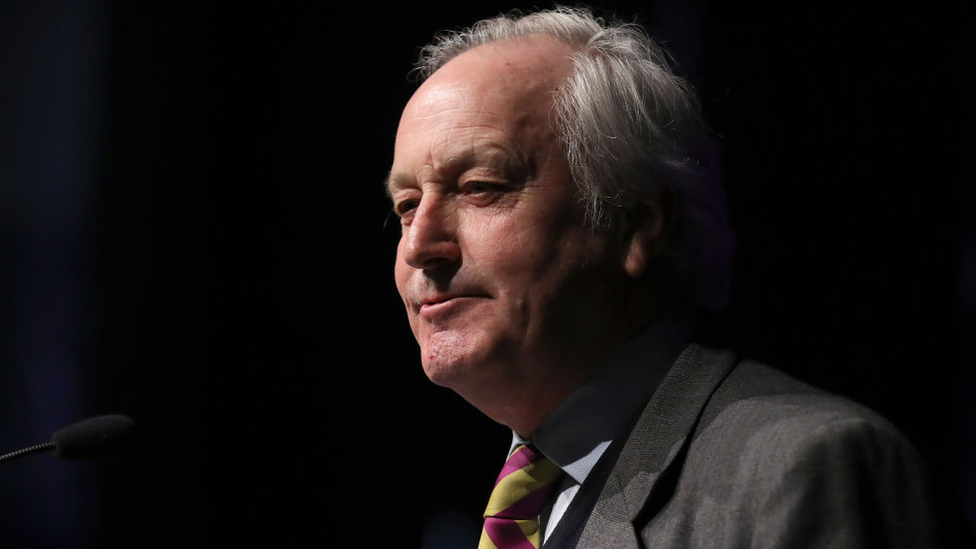
Neil Hamilton is the only UKIP representative in the Senedd to stand for it again in 2021
A leading Abolish candidate thinks the party can do well in Labour-supporting parts of the south Wales valleys with people who voted for UKIP and for Brexit in 2016.
There is an "anti-politics mood out there", he says, which the party hopes to harness.
Reform UK, the successor to Nigel Farage's Brexit Party, has candidates standing in all regions.
But this election may have come too early for a party still trying to establish its name and identity, one of its candidates admits.

POLICY GUIDE: Who should I vote for?
FIRST TIME: Will 16-year-olds vote?

- Published13 April 2021
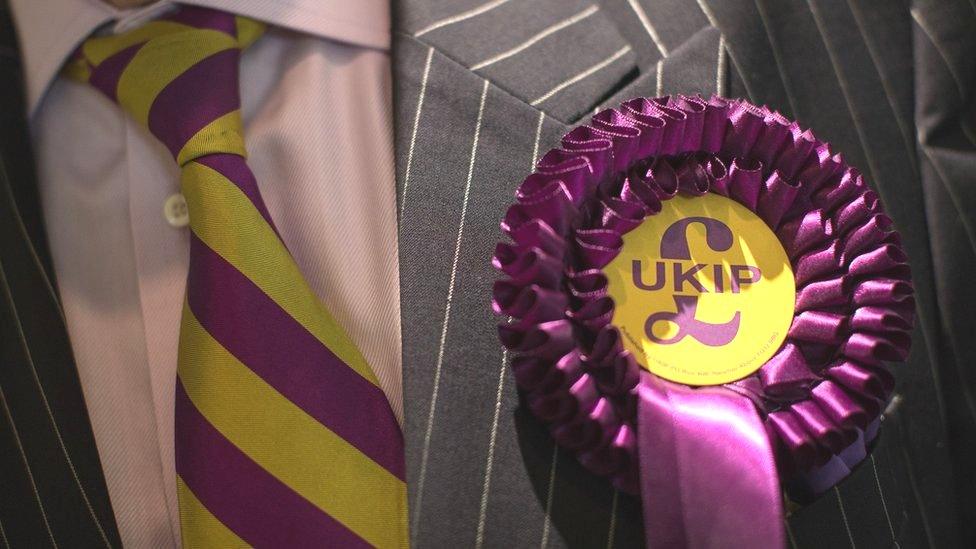
- Published13 April 2021

